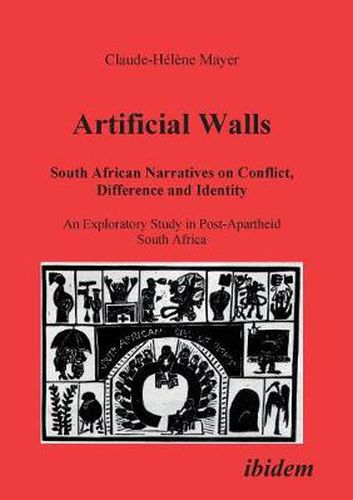Readings Newsletter
Become a Readings Member to make your shopping experience even easier.
Sign in or sign up for free!
You’re not far away from qualifying for FREE standard shipping within Australia
You’ve qualified for FREE standard shipping within Australia
The cart is loading…






This title is printed to order. This book may have been self-published. If so, we cannot guarantee the quality of the content. In the main most books will have gone through the editing process however some may not. We therefore suggest that you be aware of this before ordering this book. If in doubt check either the author or publisher’s details as we are unable to accept any returns unless they are faulty. Please contact us if you have any questions.
This book offers far-reaching insights into perceptions of conflict in South Africa. Claude-Helene Mayer’s approach is remarkable, because she imparts the recollections of numerous people from diverse ethnic and cultural backgrounds. The author captures the essence of about one-hundred interviews reflecting disparate attitudes towards social changes in the post-apartheid Republic of South Africa. Unexpected statements - for example, with respect to the continued existence of internalized apartheid - are carefully analyzed and hermeneutically understood. At the beginning of the research, presumptions might have raised expectations for the similarity between the narrative interviews. However, it becomes clear during the reading of this work that each interview was itself unique and each created a unique situation between the interviewer and the interviewee, inviting the reader to listen again and again to the spoken and analyzed words. The thorough, months-long field stays, from 1999 until 2004, emphasize the researcher’s exhaustive effort better to understand the perspective of the interviewees. In addition to the book’s research-related merits, its data can increase the cultural competence of those readers who are interested in information on specific predominant-cultural standards in present day South Africa. Readers can more fully appreciate how the people in South Africa live a special, dynamic form of their unmatched unity in diversity.
$9.00 standard shipping within Australia
FREE standard shipping within Australia for orders over $100.00
Express & International shipping calculated at checkout
This title is printed to order. This book may have been self-published. If so, we cannot guarantee the quality of the content. In the main most books will have gone through the editing process however some may not. We therefore suggest that you be aware of this before ordering this book. If in doubt check either the author or publisher’s details as we are unable to accept any returns unless they are faulty. Please contact us if you have any questions.
This book offers far-reaching insights into perceptions of conflict in South Africa. Claude-Helene Mayer’s approach is remarkable, because she imparts the recollections of numerous people from diverse ethnic and cultural backgrounds. The author captures the essence of about one-hundred interviews reflecting disparate attitudes towards social changes in the post-apartheid Republic of South Africa. Unexpected statements - for example, with respect to the continued existence of internalized apartheid - are carefully analyzed and hermeneutically understood. At the beginning of the research, presumptions might have raised expectations for the similarity between the narrative interviews. However, it becomes clear during the reading of this work that each interview was itself unique and each created a unique situation between the interviewer and the interviewee, inviting the reader to listen again and again to the spoken and analyzed words. The thorough, months-long field stays, from 1999 until 2004, emphasize the researcher’s exhaustive effort better to understand the perspective of the interviewees. In addition to the book’s research-related merits, its data can increase the cultural competence of those readers who are interested in information on specific predominant-cultural standards in present day South Africa. Readers can more fully appreciate how the people in South Africa live a special, dynamic form of their unmatched unity in diversity.